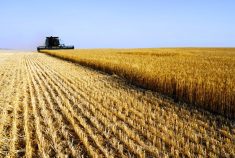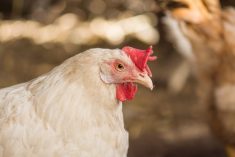An Alberta livestock rescue organization that was being investigated by the provincial SPCA has closed its doors.
The Forgotten Farm, owned and operated by Tara Davies near in Springbank, recently posted notices about the operation’s closure via social media. The SPCA began an investigation after two former volunteers at the farm called with concerns about animal welfare.
“We do have an open investigation. We do not have any charges pending at this time and … we have not seized any animals,” SPCA communications manager Roland Lines said today.
Read Also

Ample supplies and improved livestock sector to boost Canadian feed sector: FCC
Abundant feed grain supplies and improved profitability for the livestock sector should support strong feed demand and sales through the winter, says a new report from Farm Credit Canada.
“We’re not anticipating any charges as a result of the investigation.”
Lines said confidentiality policies prevent the SPCA from revealing how many animals are on the farm, the type of livestock involved in the investigation and whether any animals were found to be in distress.
Recent television coverage of the Forgotten Farm’s operations showed several horses but no other livestock.
“One of the concerns around this case is it involves the fact that Forgotten Farm was at least nominally a rescue organization,” Lines said.
“Our understanding is that she would take in animals that needed rehabilitation or re-homing.”
Approximately 300 animal rescue operations function in Alberta, Lines added.
Many of them are well run, but there are no restrictions on how they operate. The resulting variety ranges from individuals to established societies to registered charities.
In some cases, the number or condition of rescued animals can overwhelm the individuals or groups operating the rescue.
“We do often run into concerns with them that are sometimes simply due to the fact that these organizations are taking on animals that are already compromised,” said Lines.
“There have been concerns about rescue organizations that got in over their head and weren’t able to provide sufficient care for the animals that they had,” he said.
“We would like to see more centralized support and organization for rescue groups in the province.”

















